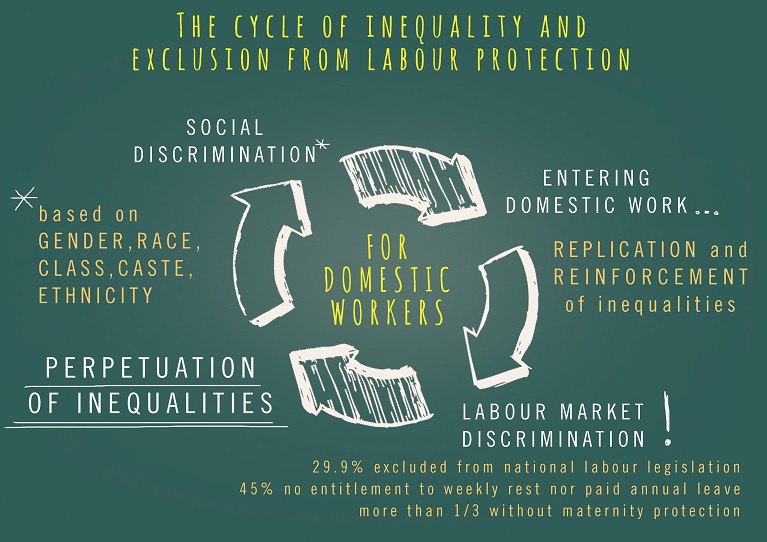Policy resource pages by theme
Social and labour protection

Due to the particular characteristics of the sector – work is performed in private households, workers often have more than one employer, low rates of formal employment contracts, etc. – extending protections to domestic workers is rife with challenges. It is estimated that globally only 10 per cent of domestic workers enjoy labour protections equal to those enjoyed by other workers. 90 per cent of domestic workers are legally excluded from social security systems. Migrant domestic workers face even greater discrimination than that experienced by domestic workers in general. Approximately 14 per cent of countries whose social security systems provide some type of coverage for domestic workers do not extend the same rights to migrant domestic workers.
Implementing the basic principles embodied in Convention No. 189 calls for assessment and strengthening of national labour laws. The ILO’s work promotes policies and strategies to extend labour and social protection to domestic workers as a part of a broader set of interventions guided by formalization policies in general.
Key resources:
- Making the right to social security a reality for domestic workers: A global review of policy trends, statistics and extension strategies, Report
- Extending social security to domestic workers, Policy Resource Package (e-module)
- Effective protection for domestic workers: A guide to designing labour laws, Guide
- Social protection for domestic workers: Key policy trends and statistics
- Extension of social protection of migrant domestic workers in Europe, Brochure
- “Meeting the needs of my family too”: maternity protection and work-family measures for domestic workers, Domestic Work Policy Brief
- Expanding Social Security to Migrant Domestic Workers (2016)
- Guaranteeing social protection for domestic work in Argentina